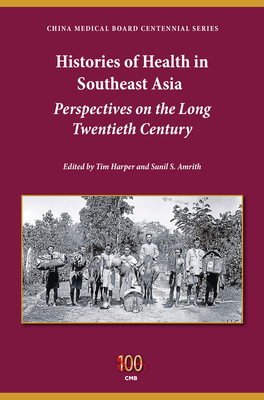

 Indiana University Press
Indiana University Press
Histories of Health in Southeast Asia: Perspectives on the Long Twentieth Century


Key Metrics
- Tim Harper
- Indiana University Press
- Paperback
- 9780253014917
- 9 X 5.9 X 0.7 inches
- 0.8 pounds
- Medical > Public Health
- English
 Secure Transaction
Secure TransactionBook Description
Health patterns in Southeast Asia have changed profoundly over the past century. In that period, epidemic and chronic diseases, environmental transformations, and international health institutions have created new connections within the region and the increased interdependence of Southeast Asia with China and India. In this volume leading scholars provide a new approach to the history of health in Southeast Asia. Framed by a series of synoptic pieces on the Landscapes of Health in Southeast Asia in 1914, 1950, and 2014 the essays interweave local, national, and regional perspectives. They range from studies of long-term processes such as changing epidemics, mortality and aging, and environmental history to detailed accounts of particular episodes: the global cholera epidemic and the hajj, the influenza epidemic of 1918, WWII, and natural disasters. The writers also examine state policy on healthcare and the influence of organizations, from NGOs such as the China Medical Board and the Rockefeller Foundation to grassroots organizations in Thailand, Indonesia, and the Philippines.
Author Bio
Professor Tim Harper focuses on history of Southeast Asia and lead School of the Humanities and Social Sciences.
Professor Harper is also a Director of the Centre for History and Economics, a Publishing Member of Cambridge University Press and a Consulting Editor of Modern Asian Studies.
Tim Harper's research interests are centered on the history of modern Southeast Asia and the region's global connections. His first book, The End of Empire and the Making of Malaya (1999), was a study of war, communist rebellion and the achievement of independence in Malaya and Singapore.
Since then, he has published, with Christopher Bayly, a two-volume account of the Second World War and its aftermath in South and Southeast Asia, Forgotten Armies (2004) and Forgotten Wars (2007). His recent work has focused on mobility and interactions across Asia, and the sites, networks and ideas that emerged from this, as featured in Underground Asia: Global Revolutionaries and the Assault on Empire (2020).
Source: University of Cambridge Faculty of History
Videos


Community reviews
Write a ReviewNo Community reviews